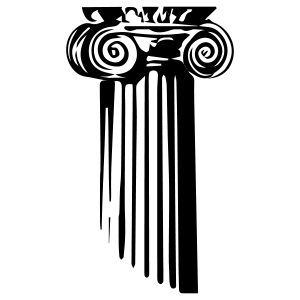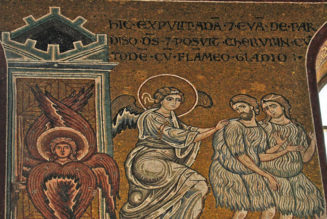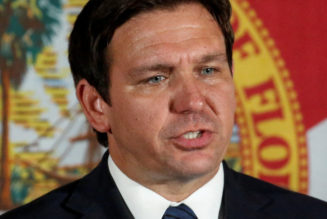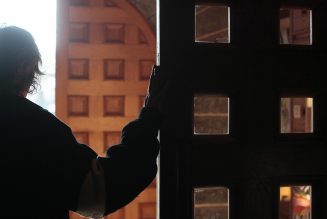Hey everybody:
Please allow me to wish you a blessed Holy Week.
If you work in parish or diocesan ministry, Holy Week can feel a bit like Super Bowl week, especially if you’re preparing liturgies, preparing catechumens and candidates, or — like canon lawyers everywhere — fielding phone calls from pastors about paperwork, or confirmation faculties, or any of other things not yet completed before the Easter Vigil.
Years ago, a mentor gave me a helpful reminder during the rush of details to be completed before the sacred Triduum: “Let’s remember,” he said, “that behind each file, each case, each piece of paper is a soul beloved by Jesus Christ, and longing for unity with him.”
If you’re busy attending to the details this week, I’ll be praying that God brings you every peace and consolation.
And if you’re reading this newsletter as you prepare to be baptized, to be confirmed, or to enter the full communion of the Church, please know that all of our readers will be praying for you today, this week, and in the months to come.
What’s new from The Pillar
For more than 200 million Christians around the world, Holy Week is still more than a month away. Yesterday, I set out to write a simple explainer about why Catholics and Orthodox Christians celebrate Easter on different dates.
But, it’s actually a lot more complicated than I realized. Surprisingly, for example, a significant number of Catholics actually celebrate on “Orthodox Easter,” or even celebrate both dates.
So here’s a weird update on Vatican finances. Remember Gianluigi Torzi, the guy facing Vatican charges of extortion for his role in the Secretariat of State’s purchase of a London apartment building? You might know that he spent about a week in Vatican custody last year. Eventually he was approved for release, on a bond of almost 3 million euros. Well, of course, the bond never actually got paid. But Torzi got out anyway. Read all about it, along with a few other updates on Vatican finance, and the pope’s call for more legal reforms of the Vatican court system.
—
We interviewed this week Archbishop Charles Chaput about his new book, “Things Worth Dying For.”
The archbishop talked about his own family life, his sense of the future of the Church, the challenges of the pandemic, and the importance of friendship.
Talking about learning to pray together as a family, he also offered a piece of wisdom that has, I think, much broader application:
“It’s always better to do a little bit of something well than to do a lot of something poorly. And unfortunately in the Church, we sometimes think that we please God by just doing more, when we really would please God more by doing less, but doing it well — sincerely and with focus and concentration.”
You can read a version of the interview here.
You can listen to the full interview, a bonus episode of The Pillar Podcast, here. He offered some unique thoughts on the life of the Church and played a pretty good game of “Yes or No.”
And if you’ve ever said to yourself, “I wonder what Archbishop Chaput’s favorite Jay-Z song is,” well, now you know:
(By the way, Ed and I decided a couple of weeks ago that the official hip-hop song of the Vatican finance scandal should be Wu-Tang Clan’s classic, C.R.E.A.M. – “Cash rules everything around me.”)
The German problem takes Europe
Since the Congregation for the Doctrine of the Faith published two weeks ago a clarification on the possibility of liturgically blessing same-sex unions, the backlash in Germany has been fierce. Priests have said they intend to ignore the Vatican’s directive, bishops have endorsed that intention, and the lay members of the “Synodal Way” seem intent on eventually holding a formal vote to defy the Vatican’s instruction.
But the opposition has spread beyond Germany. A Belgian bishop said the Vatican’s moral reasoning on the subject “does not even reach the level of high school.” Other European bishops, including the president of the Austrian bishops’ conference, offered similar sentiments.
And now Cardinal Christoph Schönborn, the Archbishop of Vienna, has weighed in to criticize the CDF’s statement. The cardinal has said there are circumstances in which he would not refuse to bless same-sex sexual partnerships, an act the Vatican said is not within the Church’s power.
Schönborn has also told reporters he was not happy about the CDF’s decision, calling it a “communication error” and urging that the Church talk less about sexuality.
Because Cardinal Schönborn was the general editor of the Catechism of the Catholic Church, and is actually a member of the Congregation for the Doctrine of the Faith, his public disavowal of the congregation’s position is significant. And unchecked, it may signal to bishops in other parts of the world the license to publicly repudiate a doctrinal document approved for publication by Pope Francis.
It is unlikely that very many American bishops will say directly they would ignore a CDF directive; that kind of open defiance is not usually the way American Church culture works. But some U.S. bishops may continue to signal their opposition, and other Americans will continue trying to show that when the pope approved the document, he didn’t really mean what the CDF said. (Interestingly, LGBT advocates —those most vocally opposed to the Vatican’s position — have been among those to call that effort disingenuous, insisting that if the pope approved it, the pope meant it.)
In other parts of the world, pressure to call for liturgical blessings of same-sex union will likely be amplified. Two Anglophone countries, Australia and Ireland, are in the early stages of national pastoral planning projects: a synod for Ireland, and a plenary council Down Under. Bishops in those countries will probably face — and almost certainly resist — pressure to include opposition to the CDF’s position in the documents of those meetings.
But none of those problems is as acute as the problem in Germany. A schism is the refusal of submission to the Roman pontiff — If priests in Germany actually defy the Apostolic See in a public way, and bishops give tacit or explicit approval to that defiance, the idea of schism will become a very live concern.
Of course, money plays a role here. The German bishops — whose dioceses are taxpayer funded — almost certainly feel pressure to capitulate to the prevailing public ethos about homosexuality. They run the risk of losing their funding if the German public decides that refusal to bless same-sex unions is an intolerable intolerance. Francis has insisted on a poor Church for the poor; it may be time to find out if the majority of German bishops actually want to belong to such a Church.
On the other hand, it’s not clear what would happen to German taxypayer funding if German bishops were declared to be in schism. And no one seems especially keen to find out. The prospect of losing their funding by that route — however craven a motive that might seem — might be enough to keep German bishops at least talking to the Vatican.
The good news is that the pope has a blueprint for dealing with these kinds of matters. When he didn’t like the direction of the American bishops after the McCarrick scandal, he ordered them to put the brakes on their initiatives, to make a retreat together, and to wait for him to act. When scandal hit the bishops of Chile, he called them all to a multi-day meeting in Rome, at the end of which they all submitted to him their resignations.
It may be time already for the pope to call the German bishops to the Vatican for their own retreat, or for him to show up in Munich’s cathedral and direct them all to clear their schedules for a few days of prayer and discussion. It seems obvious that on this matter, as Germany goes, much of Europe will will go too. If Pope Francis wants to reset his engagement with the German bishops, he will probably have to meet with them — with all of them — and be very clear about his expectations going forward.
Here’s one other point to keep an eye on.
It is well-known that many LGBT-rights activists, among them the American priest Fr. James Martin, SJ, have expressed opposition to the language used in the Catechism of the Catholic Church to describe homosexuality. They have argued that language describing homosexual acts as “intrinsically disordered” is too easily understood to describe the people inclined toward those acts, rather than to describe the acts themselves.
Some ecclesial sources in Germany have told The Pillar that activists, and even some bishops, want to leverage the current crisis in the country towards a change in the Catechism’s language to describe homosexual acts. The thought is that the pope and the CDF might be open to accepting different language if it would ensure ecclesiastical unity and orthopraxy in Germany.
Pope Francis may be personally open to using different language — although his assent to the moral principles at play is not in question, it seems plausible that he would be open to hearing arguments about how best to express the Church’s teaching.
But the pope has shown little patience for gamesmanship on issues of Catholic doctrine. And although Pope Francis has already changed language in the Catechism, it seems unlikely that he’ll warm up to the idea of negotiating over how Catholic doctrine is expressed as though the Catechism were a piece of parliamentary legislation, especially if he has the sense of being held hostage by the prospect of schism. The pope has made rather clear, especially after the Amazon synod, that he does not like being pushed around on such maters.
Furthermore, if the pope seemed to be negotiating language to avoid schism, he’d likely hear considerable objection from other corners of the Church. In short, if that idea is indeed being proposed seriously in Germany, it does not seem especially likely to work.
From death to life
On the sacred Triduum, St. Basil the Great says it better than I could:
“When mankind was estranged from him by disobedience, God our Savior made a plan for raising us from our fall and restoring us to friendship with himself. According to this plan Christ came in the flesh, he showed us the gospel way of life, he suffered, died on the cross, was buried and rose from the dead. He did this so that we could be saved by imitation of him, and recover our original status as sons of God by adoption.
To attain holiness, then, we must not only pattern our lives on Christ’s by being gentle, humble and patient, we must also imitate him in his death. Taking Christ for his model, Paul said that he wanted to become like him in his death in the hope that he too would be raised from death to life.
We imitate Christ’s death by being buried with him in baptism. If we ask what this kind of burial means and what benefit we may hope to derive from it, it means first of all making a complete break with our former way of life, and our Lord himself said that this cannot be done unless a man is born again. In other words, we have to begin a new life, and we cannot do so until our previous life has been brought to an end.”
Thank you all for your support of The Pillar. We are deeply grateful. Please be assured of our prayers, and please keep us in yours.
Sincerely yours in Christ,
JD Flynn
editor-in-chief
The Pillar
Join Our Telegram Group : Salvation & Prosperity









